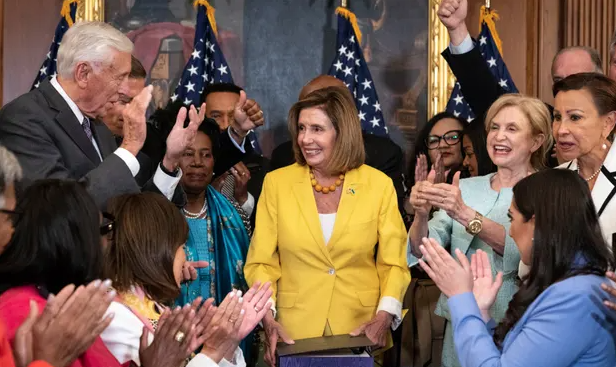
The Guardian
In 2004, a features editor asserted that "it is no secret we are a centre-left newspaper."
When the House of Representatives passed landmark climate legislation on Friday, Joe Biden chalked up one of the surprise successes of his presidency. Only last month his ambitious agenda appeared sunk after a conservative Democrat and coal baron, Joe Manchin, refused to back it. His vote is crucial in an evenly divided Senate. However, the climate proposals were largely resurrected in the form of the Inflation Reduction Act (IRA), co-authored by Mr Manchin, which Congress approved.
The first major US climate law comes not a moment too soon. It is the country’s best and last opportunity to meet its goal of halving greenhouse gas emissions by 2030 and, with it, a world where net zero by mid-century is possible. After Donald Trump, Mr Biden can reclaim the mantle of global climate leadership for the US. But the act reveals the limits of his power.
The Democrats’ initial $3.5tn plan was to expand education, fight poverty, lower healthcare costs and tackle climate change. That was whittled down to a $1.75tn bill that the House passed last year. But it got nowhere in the Senate. Mr Manchin refused to back the social security programmes and his centrist colleague Kyrsten Sinema refused to back the tax rises. What was left was $490bn in climate and healthcare investments.
This deserves a small cheer from progressives. Mr Biden is pursuing a muscular policy of state intervention in the economy. The act for the first time gives the federal government the power to negotiate lower drug prices. Significantly for the climate, it represents a new US industrial policy that subsidises zero-carbon power production via tax credits. It also recognises that the US is falling behind China in green technology – spending $152bn less on renewable investments last year – and focuses on ways to encourage clean-energy manufacturing.










